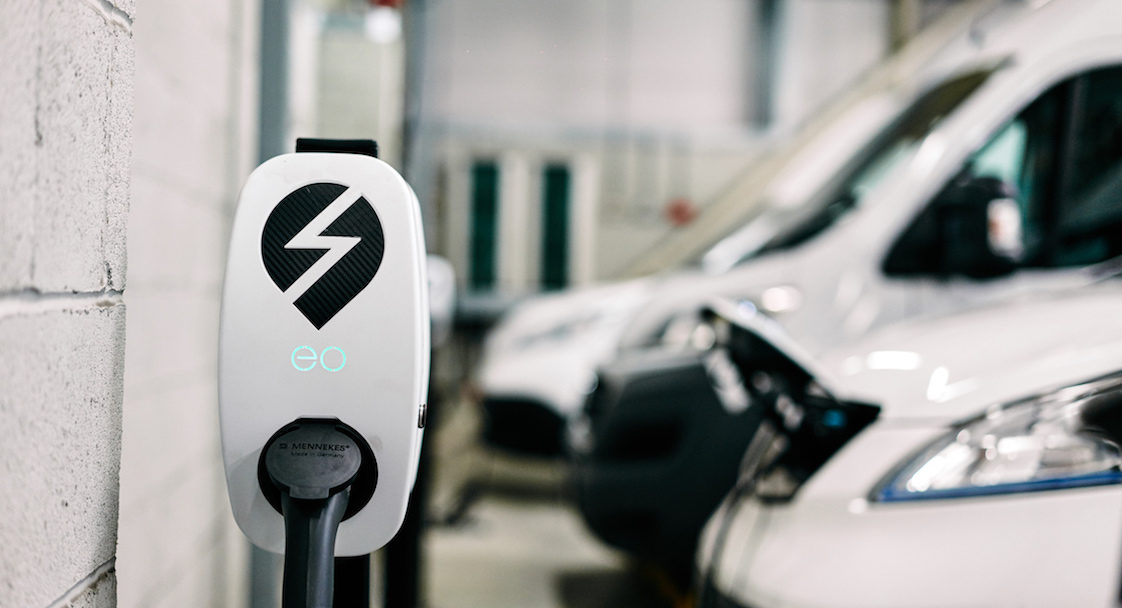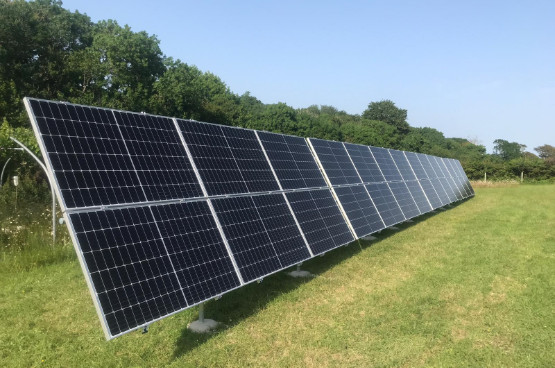First of all – do you even need a charging point installed for your EV?
The short answer is no, technically you don’t. But, you’ll really wish you had one.
Most EVs come with two charging cables*
Cable number 1 is a UK plug to Type 2 cable. This means you can plug your EV into one of the standard 3-pin plug sockets in your house or garage, to charge. This method bypasses the need to install a dedicated EV charge point. The downside is that the charging speed will be slow – you can expect an average charging speed of around 2.4kW (it will vary throughout the day). That’s about 11-12 miles of range per hour charging for Ollie’s Tesla (link to case study). He would need to leave his car plugged in for over 20 hours to charge from 0 to 100%.

Type 2 to Type 2 cable. This cable needs to be plugged into a dedicated EV charging point with a Type 2 adaptor.
Cable number 2 is a Type 2 to Type 2 cable. This cable needs to be plugged into a dedicated EV charging point with a Type 2 adaptor. With one of these, you can charge your EV at much faster speeds, typically at about 7kW for domestic properties. That’s about 31-32 miles of range per hour charging for Ollie’s Tesla, cutting his time for a full charge down to roughly 7 hours.
*This is a big simplification of the types of charging cables available. Type 2 is the most common AC charging cable so I’m using it for this article. The other AC charging cable is Type 1, although it is getting gradually phased out by Type 2. DC charging cables include CCS and CHAdeMO – these are for rapid charging stations which you can’t get at domestic properties.
Not all EV chargers are created equal. Some are ‘smart’ and some are ‘dumb’. What determines the intelligence of an EV charger?
A ‘dumb’ charger is one that performs the minimum charging function. You plug your EV into the charger and it will charge your EV at the fastest speed available, often 7kW for residential chargers.
A ‘smart’ charger can do so much more. The fundamental principle of a smart charger is that it has internet connectivity. This allows advanced monitoring and remote control of your charger, usually via a smartphone app. This allows you to remotely start, stop and schedule your charging via your phone. You can also monitor your charging and utilise the time-of-use electricity tariffs. Crucially, smart chargers are eligible for the OLEV grant. The OLEV grant is a £350 contribution towards your charging point from the government and is available for homes and businesses. A dumb charger might initially appear to be the cheaper option, but once the OLEV grant is applied, it nearly always makes financial sense to go with a smart charger.
Smart chargers can also integrate with your solar PV system, which we look at in our third and final installment, Driving on sunshine part 3: solar EV charging.
The key benefits of installing an EV charging point are:
- Charge your EV much faster at speeds, usually around 7kW for domestic properties
- You can make use of the £350 government grant towards the charging point (smart charger only)
- Monitor and remotely control your EV charging via a smartphone app (smart charger only)
- Charge your EV for less by scheduling charges with off-peak electricity tariffs (smart charger only)
- Charge your EV directly from your solar panels (certain smart chargers only – see next section)
Read on to learn all about solar EV charging here

 Solar PV Contractor of the Year 2024
Solar PV Contractor of the Year 2024
